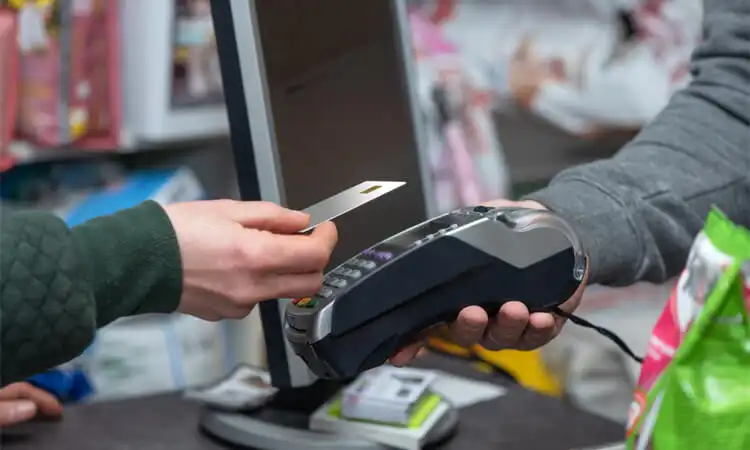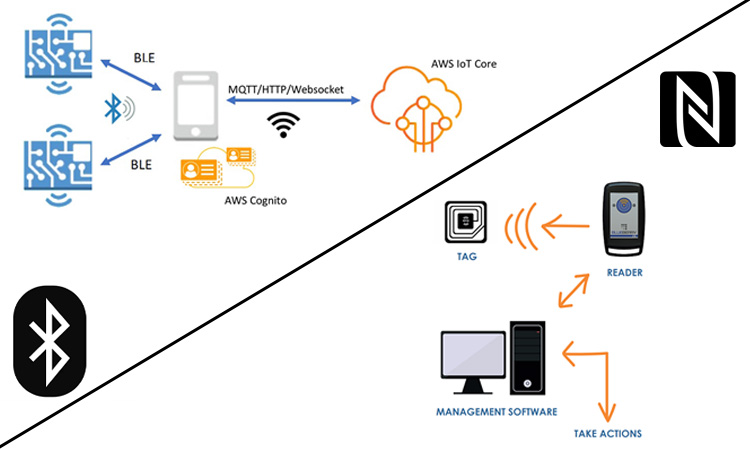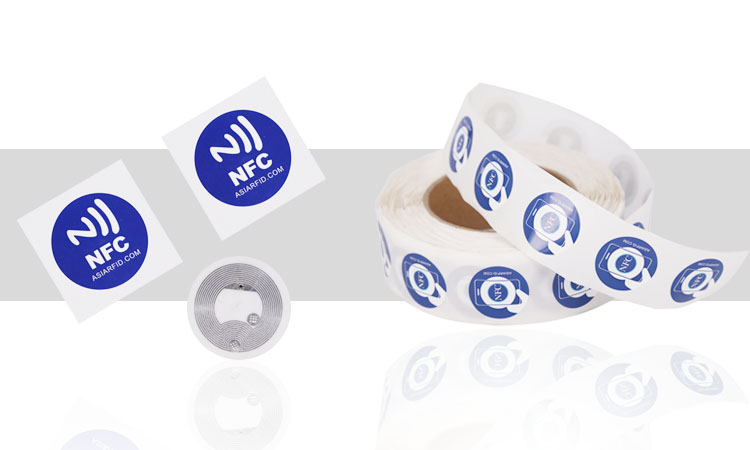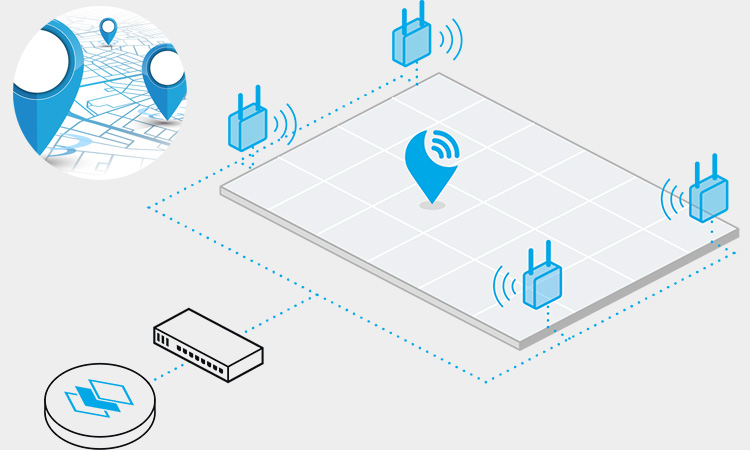In today’s digital age, accepting credit card payments has become necessary for many businesses. However, obtaining a merchant account can be difficult, expensive, and time-consuming. Fortunately, there are alternatives available. According to recent research, over 90% of Americans have access to a smartphone, and mobile payment apps are becoming more popular. Here, We will explore various options for accepting credit card payments without a merchant account. These include in-store and online options and the benefits of using payment facilitators like Stripe.
What is a Merchant Account?
A merchant account is a type of bank account that enables businesses to accept credit and debit card payments from customers. According to recent statistics, the global merchant account market is expected to reach $16.2 billion by 2025, growing at a compound annual growth rate (CAGR) of 9.9%.
In order to obtain a merchant account, businesses must apply through an acquiring bank or payment processor. They also must meet certain criteria, such as a minimum credit score and transaction volume. Merchants are charged a range of fees for accepting card payments. These include interchange, processing, and chargeback fees.
Merchant accounts are particularly useful for businesses that rely heavily on credit and debit card transactions. Such as e-commerce retailers, restaurants, and service providers. However, the application process can be complex, and the fees associated with merchant accounts can add up quickly. This can be a barrier for small businesses.

How Does a Merchant Account Work?
Businesses that want to accept customer credit card payments need to set up a merchant account. A merchant account is a specialized bank account that holds funds from credit card transactions until the credit card network processes the payment. Once the payment is processed, the funds are transferred to the business’s bank account.
However, setting up a traditional merchant account can be a complex and costly process. Businesses must work with a merchant services provider or a bank to negotiate a contract, pay monthly fees, and purchase hardware or software to accept payments in-store or online.
Many businesses now use all-in-one payment service providers to simplify this process instead of setting up a traditional merchant account. These providers offer a comprehensive payment processing solution that includes hardware, software, and payment gateway services. They typically charge a flat fee or a percentage of each transaction, making it easier and more cost-effective for businesses to accept credit card payments.
While traditional merchant accounts are still an option for businesses, many companies prefer all-in-one payment service providers as a more streamlined and affordable solution for accepting credit card payments. These providers offer a range of features and benefits, such as easy setup, no monthly fees, and compatibility with various payment methods and devices.
Is it Easy to Apply for a Merchant Account?
Applying for a merchant account can be a complex process, and the ease of the application process varies depending on the type of business and the merchant account provider. According to recent data, the average time it takes to set up a merchant account can range from a few days to several weeks, and the approval rate can be as low as 60%.
The application process typically requires businesses to provide detailed information about their company. These include financial statements, tax identification numbers, and processing history. Merchant account providers also assess various risk factors. These include the business’s credit history, industry type, and transaction volume.
Once approved, businesses must set up the necessary hardware and software to process card payments. This can add additional time and expense. At the same time, some providers offer simplified application processes, such as online applications and fast approval times. But these options may come with higher fees and less favorable terms.
Additionally, some providers may require merchants to sign long-term contracts and pay significant fees for setup, monthly maintenance, and transaction processing.
How Does Merchant Account Work?
A merchant account enables businesses to accept customer credit and debit card payments. When a customer makes a payment with their card, the transaction is processed through the merchant account, which routes the payment to the appropriate acquiring bank and payment processor.
According to industry research, the process of accepting credit card payments involves four main steps: authorization, batching, clearing, and funding.
- During the authorization step, the payment processor verifies the customer’s card details and checks for sufficient funds.
- Then, the transaction is batched and sent to the acquiring bank for clearing. This involves verifying the transaction details and deducting the funds from the customer’s account.
- Finally, the funds are transferred to the merchant’s bank account, usually within a few days. Merchant accounts typically charge a range of fees. These include transaction fees, processing fees, and chargeback fees, which can vary depending on the provider and the type of transaction.
Overall, a merchant account is a vital component of accepting credit and debit card payments. It allows businesses to increase revenue and streamline transactions.
Merchant Account vs Business Bank Account
While merchant and business bank accounts may seem similar, they serve different purposes. A business bank account is a standard checking account used to manage their finances, while a merchant account enables businesses to accept credit and debit card payments.
According to industry research, many payment processors and acquiring banks require businesses to have separate business bank accounts to apply for a merchant account. This helps to ensure that the business is legitimate and financially stable. While both types of accounts can be held at the same bank, they operate independently of each other. A business bank account typically does not involve the same fees as a merchant account and may have different features and benefits depending on the bank.
Here’s an example table comparing Merchant Accounts and Business Bank Accounts:
| Merchant Account | Business Bank Account | |
|---|---|---|
| Purpose | Process credit card payments | Hold funds for business transactions |
| Fees | Transaction fees, setup fees, monthly fees, chargeback fees | Account fees, transaction fees, wire transfer fees, overdraft fees |
| Approval process | Extensive application and underwriting process | Relatively easy to open |
| Payment processing time | Usually 2-3 business days | Same day or next business day |
| Chargebacks | Merchant is liable for chargebacks | Business is liable for chargebacks |
| Payment types accepted | Credit and debit cards | Cash, checks, ACH transfers, wire transfers, credit and debit cards |
| Processing equipment | Requires a credit card terminal or payment gateway | No specialized equipment needed |
| Availability | Only available to businesses that meet underwriting requirements | Available to any business |
Merchant Accounts Downsides
While merchant accounts can be beneficial for businesses, they also come with certain downsides:
- The fees associated with accepting card payments. This can add up quickly and eat into profits. Merchants are typically charged various fees, including:
- Interchange fees,
- Processing fees,
- Chargeback fees,
- Transaction fees
- Currency conversion fees
- Application fees
- Setup fees
- Annual fees
- The application process for a merchant account can be complex. Businesses must meet certain requirements, such as a minimum credit score and transaction volume.
- The risk of fraud and chargebacks. Because they may be liable for fraudulent transactions and disputed charges. This can further impact a business’s bottom line.
- A merchant account’s ongoing maintenance and hardware costs can also be a burden for some businesses.
While merchant accounts can be a valuable tool for accepting card payments, businesses must weigh the benefits against the costs and risks.
What is a Payment Facilitator (PayFac)?
A Payment Facilitator, or PayFac, is a type of third-party service provider. It enables businesses to accept credit and debit card payments without a traditional merchant account.

PayFacs act as intermediaries between businesses and payment processors, simplifying the application process and offering faster approval times. PayFacs typically offer a range of features and benefits. These include customizable payment pages, fraud protection, and chargeback management.
PayFacs often charge a flat transaction fee, which can be more affordable for small businesses or those with lower transaction volumes. However, PayFacs may also have lower transaction limits or more stringent requirements than traditional merchant accounts.
Additionally, because PayFacs act as intermediaries, they may be held liable for chargebacks or fraudulent transactions, impacting their bottom line. Overall, PayFacs offer a flexible and convenient alternative to traditional merchant accounts. But it is important for businesses to carefully evaluate the provider’s offerings and fees before choosing a solution.
Alternative: Third-Party Payment Processing Advantages and Disadvantages
Third-party payment processing has become a popular option for businesses of all sizes. It offers a quick and easy way to accept electronic payments without investing in costly infrastructure. While there are many benefits to using third-party payment processing, there are also some potential drawbacks that businesses should consider.
Advantages of Third-Party Payment Processing
- Reduced hassle for merchants – No need to handle payment details and transactions themselves.
- Increased security – Sensitive customer payment information is not stored with the merchant.
- Fraud prevention – Dedicated payment processors have advanced fraud detection tools and monitoring.
- Accept more payment methods – Easily add options like Amex, Discover, Apple Pay, etc.
- Focus on core business – Merchants can concentrate on their key products and services.
Disadvantages of Third-Party Payment Processing
- Processing fees – Merchants must pay a percentage of each transaction to the payment processor.
- Lack of control – Some control and flexibility are given up regarding how payments are processed.
- Integration challenges – Integrating with a third-party system may require resources and time.
- Fraud liability – While less likely, merchants can still be liable for fraud not detected by the processor.
- Switching costs – Changing payment processors once integrated can be difficult and costly.
- Technical dependencies – Reliance on the payment processor for key payment functionality. Issues with their systems can impact the merchant’s business.
How To Accept Credit Card Payments Without a Merchant Account
There are several ways to accept payments without a merchant account, depending on the type and volume of transactions you need to process. Here are a few options:
- Option 1: Payment service providers: You can use third-party payment service providers like PayPal, Stripe, or Square to accept payments. These providers offer a range of payment options, including credit and debit cards, bank transfers, and digital wallets. They charge a fee per transaction, but they do not require you to have a merchant account.
- Option 2: Peer-to-peer payment apps: Peer-to-peer payment apps like Venmo, Cash App, and Zelle allow you to send and receive payments directly from your bank account or debit card. These apps are primarily designed for personal use, but you can also use them for small business transactions.
- Option 3: Electronic invoices: You can create electronic invoices using accounting software like QuickBooks, FreshBooks, or Wave. These invoices can include payment links allowing customers to pay with a credit or debit card, bank transfer, or digital wallet. You can also send reminder emails for unpaid invoices.
- Option 4: Virtual terminals: Some payment service providers offer virtual terminals that allow you to process payments manually. You enter the customer’s payment information through the provider’s system. This option may be suitable for businesses with a low transaction volume.
Accepting In-Store Payments Without a Merchant Account
Accepting in-store payments without a merchant account is possible through the use of third-party payment processors or payment facilitators. Many payment processors offer point-of-sale hardware and software solutions. They allow businesses to accept card payments through a traditional point-of-sale system.
Some payment processors also offer mobile payment solutions, enabling businesses to accept payments using a smartphone or tablet. Payment facilitators offer similar solutions, allowing businesses to accept card payments without a traditional merchant account.
Accept Credit Cards Online Without a Merchant Account
Businesses can accept online payments without merchant account by integrating a payment gateway into their website or online store. Payment gateways allow businesses to securely accept and process card payments through their website or mobile app. Some payment gateways offer additional features such as fraud protection and chargeback management.
Businesses can accept online payments through mobile payment apps. This may charge lower fees or offer more flexibility than traditional merchant accounts.
Accept Credit Card Payments Without a Machine in Person
If you’re looking for a way to accept card payments in person without a card reader machine, some payment service providers (PSPs) offer a payment processing app that can be installed on your smartphone. With this app, you can input a customer’s card details manually or scan a QR code to quickly and securely facilitate payments on the spot. This option can be a convenient and cost-effective alternative to using a traditional card reader machine.
Stripe Benefits vs Merchant Accounts
Stripe is a popular payment processing company offering various benefits for businesses seeking to accept credit card payments. Compared to traditional merchant accounts, Stripe offers several advantages. These include easy setup and integration, transparent pricing, and flexible payment options.
Stripe’s API and developer tools make it easy for businesses to integrate payment processing into their existing website or mobile app without the need for a traditional merchant account. Stripe also offers a transparent pricing structure with no setup fees, monthly fees, or hidden costs.
In addition, businesses using Stripe can accept various payment types. These include credit and debit cards, Apple Pay, Google Pay, and more. Stripe’s flexible payment options, including recurring billing and subscriptions. This makes it a popular choice for businesses offering ongoing services or products.
Here’s a comparison table for Merchant Account vs Business Bank Account:
| Merchant Account | Business Bank Account | |
|---|---|---|
| Definition | A type of bank account that enables businesses to accept credit and debit card payments | A standard business account that allows businesses to deposit and manage their funds |
| Fees | Transaction fees, monthly fees, chargeback fees, setup fees, and other costs may apply | Monthly maintenance fees, transaction fees, overdraft fees, and other charges may apply |
| Credit Card Acceptance | Allows businesses to accept credit and debit card payments from customers | Does not provide credit card processing capabilities |
| Application Process | Lengthy and complex process with strict requirements for approval | Relatively simple process with fewer requirements for approval |
| Payment Processing | Requires a payment gateway and may have longer processing times | Directly linked to the bank account, enabling faster processing times |
| Accessibility | May not be available to all businesses, especially those with high-risk operations | Available to most businesses regardless of industry or risk level |
| Risk Management | Merchants are responsible for chargeback and fraud prevention | Banks typically provide fraud detection and prevention services |
| Liability | Merchants may be liable for chargebacks and fraudulent transactions | Banks may assume some liability for fraudulent activity |
There are several options are available to accept credit card payments without a merchant account. From payment facilitators like PayPal and Square to mobile payment processors like Stripe, you can find a solution that works best for your business. We hope this guide on “How to Accept Credit Card Payments Without a Merchant Account” will help provide you with valuable insights and options.
About Accepting Credit Card Payments Without a Merchant Account FAQs
-
How To Accept Credit Card Payments on Android?
Several payment processing apps are available for Android devices, such as Square and PayPal. These apps allow businesses to accept credit card payments using their Android smartphone or tablet. This makes it easy to accept payments on the go.
-
How To Accept Credit Card Payments for Personal Use?
Individuals can use peer-to-peer payment apps like Venmo, Cash App, and PayPal to accept credit card payments for personal use. These apps typically charge a small fee for processing payments but offer a convenient and easy way to transfer money between individuals.
-
Do I Need a Merchant Account to Accept Card Payments?
No, alternative payment processing solutions exist, such as payment facilitators and gateways. This allows businesses to accept credit card payments without a traditional merchant account.
-
How can I Accept Credit Card Payments without a Merchant Account?
Several options are available, including payment facilitators like Square and PayPal. You can also choose payment gateways like Stripe and Authorize.Net.
-
How To Accept Credit Card Payments without a Business?
Individuals can use peer-to-peer payment apps like Venmo, Cash App, and PayPal to accept credit card payments without a business. These apps typically require users to create an account and link their bank or debit cards to accept payments.
-
Can You Have a Card Machine without a Business Account?
Using a card machine without a traditional merchant account is possible by using a payment facilitator or payment gateway provider. These solutions typically involve setting up an account with the provider and using their card reader to accept payments.
-
Can I Accept Card Payments without a Card Reader or POS Device?
Accepting card payments without a card reader or point-of-sale (POS) device is possible using a virtual terminal or online payment gateway. These solutions allow businesses to accept card payments by entering the customer’s card details into a secure online form.
-
Do I Need a Registered Business to Accept Credit Card Payments?
Accepting credit card payments as an individual without registering a business is possible. However, businesses may be required to register their business and obtain necessary licenses and permits depending on their location and industry.
-
What’s the Cheapest Way to Receive Credit Card Payments?
The cost of accepting credit card payments varies depending on the payment processing provider and the type of transaction. However, payment facilitators like Square and PayPal often offer competitive pricing and transparent fee structures.
-
How do I Accept Credit Card Payments without a Reader?
Some payment processing providers offer virtual terminal solutions. They allow businesses to manually enter credit card information for transactions without a physical card reader. Additionally, some providers offer contactless payment options, such as NFC payments, that do not require a card reader.
-
How can I accept a credit card payment from someone?
You can use a payment processing service or platform to accept a credit card payment from someone. These services and platforms allow you to manually enter the customer’s card information. Alternatively, you can use a card reader to swipe or insert the card. The payment processing service will then verify the card and process the payment.
-
How can small businesses accept credit card payments?
Small businesses can accept credit card payments using a payment processing service or platform. These services and platforms offer various options, such as mobile card readers, virtual terminals, or payment links. These options can help small businesses securely process credit card payments and improve their cash flow. They can also consider setting up a merchant account with a bank or payment processor to accept credit card payments.
-
Can I accept credit card payments with Venmo?
Venmo currently does not support accepting credit card payments. However, users can link their Venmo account to a debit card or bank account to send and receive payments.
-
Does Zelle accept credit cards?
Zelle does not accept credit cards. It only allows users to send and receive money using a bank account or debit card linked to their Zelle account.
-
Can I accept credit card payments with PayPal?
PayPal allows users to accept credit card payments by integrating with a payment processing service or using a PayPal Here card reader. Additionally, users can create payment links or send invoices to customers to facilitate credit card payments.
-
Can I use my phone to accept card payments?
Yes, using a payment processing app or platform, you can use your phone to accept card payments. These apps and platforms allow you to manually enter the customer’s card information or use a card reader to swipe or insert the card. This can be a convenient and cost-effective option for individuals or businesses that need to process card payments on the go.
-
Can I use my phone as a card machine?
Yes, you can use your phone as a card machine by using a mobile card reader that can be attached to your phone. Some payment processing services offer mobile card readers connected to your phone’s audio jack or via Bluetooth to process credit card payments.








